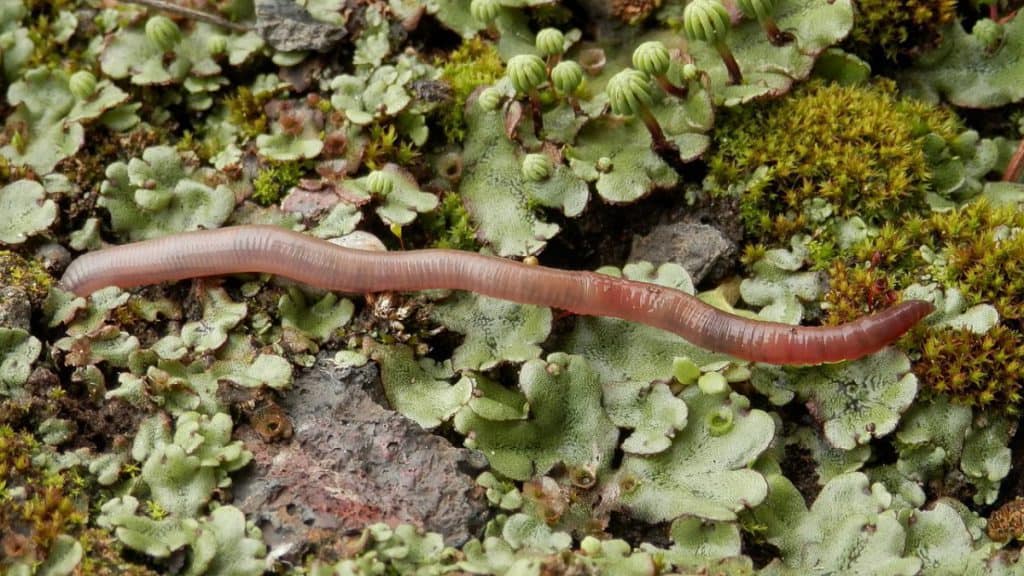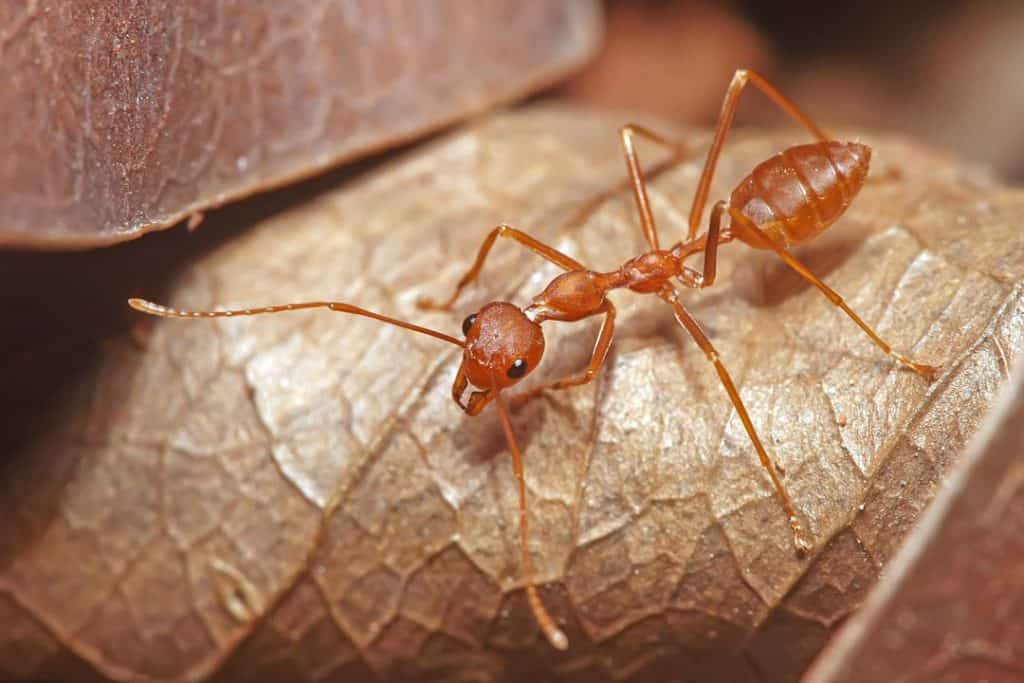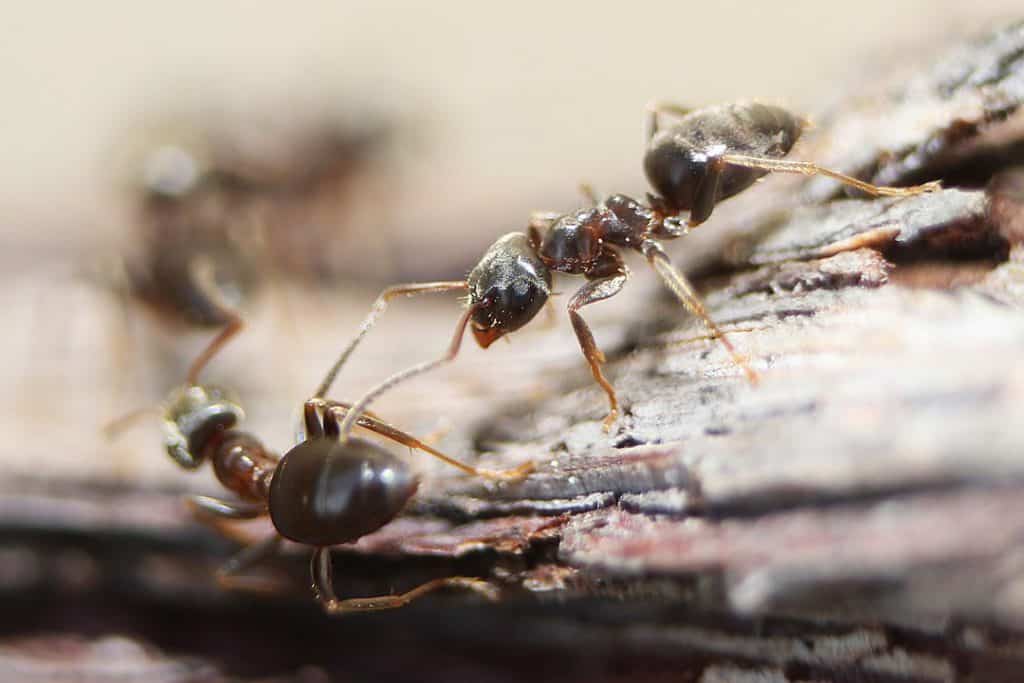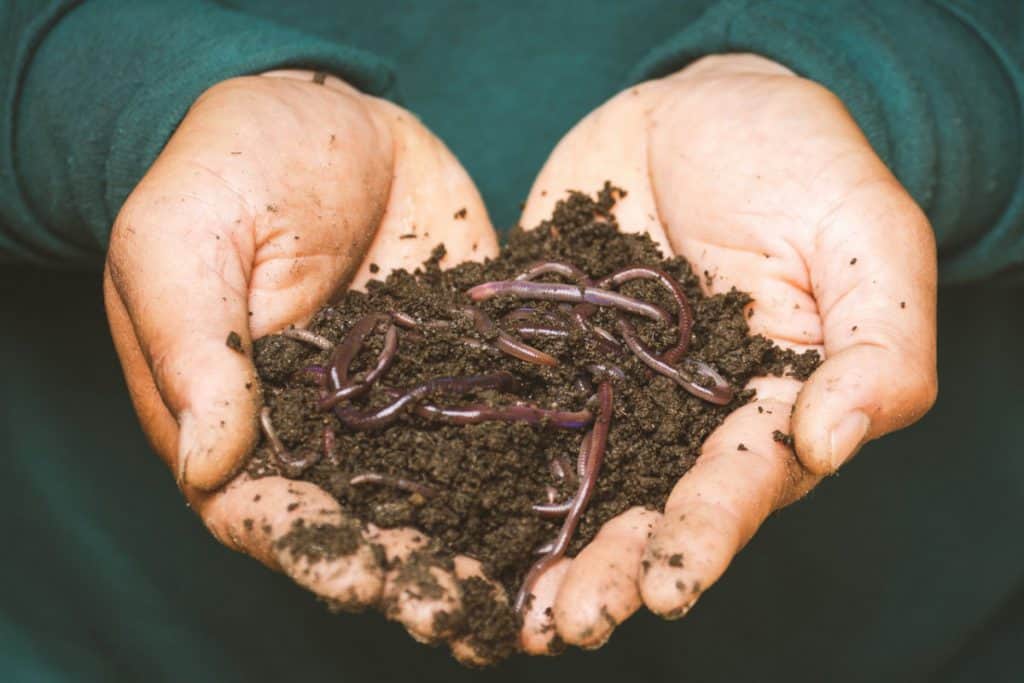If you enjoy reading this article, why not check out our articles on Can Ants Become Immune to Poison? and What Can Ants Damage? What You Didn’t Know
Ants and worms are organisms that live within the soil ecosystem. These two are often seen together in the same area, searching for food and creating tunnels. This makes me wonder if it is okay for these two organisms to live together. To quench my curiosity, I researched about how these creatures interact within the ecosystem.
Can ants and worms live together?
Some ant species can live with worms. They eat food scraps and dead insects. Worms, on the other hand, only eat dead and decaying matter such as dead ants. The type of ants that can’t live with worms are:
- carpenter ants
- fire ants
- army ants
In this article, you will learn how worms and ants interact and the role they play in the ecosystem. I will also discuss the types of ants that can’t live with worms and how to protect worms from these ant species.
Interaction Of Ants And Worms
If you love gardening and composting, you may have seen how worms and ants interact with one another many times. Worms and ants are both living in the soil, where the earth consume, digest, and cycle organisms and nutrients.
The primary food of worms, especially earthworms are microbes on dead and decaying matter. It is the reason why they are good for composting, which is the biological decomposition of different organic wastes. Ants, on the other hand, also eat the same types of food so you may also find them at compost bins, searching for vegetable and fruit scraps.
Some ants might collect foods that may otherwise go to the worms. But worms don’t eat ants unless the ant is dead. Most ants don’t also attack and consume worms. But the two may rob each other for food that every worm farm avoid.
Interested in learning more about bugs and your garden? We’ve got a whole article about it: Everything You Need to Know About Bugs and Your Garden.
Do ants feed upon other worms

Ants are the most common problem of worm farm farmers. While most ants don’t eat or attack worms, they raid the storehouses of worms to collect food. But it is not a big issue for farmers who don’t mind ants taking some worm food on their farm. The problem is, there are types of worm-eating ants that farmers should deal with.
Types Of Ants That Can’t Live With Worms
Some ants are predaceous and they attack earthworms. These ants include red fire ants, carpenter ants, and army ants.
Carpenter Ants
Carpenter ants are predatory ants that primarily feed on small insects like inchworms and aphids. They build their nest on woods and chew on them, making them a huge problem for homeowners. They also eat different kinds of foods, including worms so you better protect your worm farm from this type of ant.
A carpenter ant colony may contain about 10,000 to 20,000 workers and it can grow up to 50,000 together with a wingless queen. They usually feature a body color of black, red, or a combination of the two colors. They are segmented oval in shape and they come with antennae. Carpenter ants have eight legs and they are about 5/8-inch in size.
What attracts carpenter ants in a home?
These types of ant also hibernate during cold months. So once they are asleep, their entire colony does not eat or drink anything until the spring season. They use the fats that are stored inside their bodies to survive the winter. It means, worms are only safe from these predatory ants during winter.
When carpenter ants are finally awake, they may go back to feeding on worms, aphids, wood, and so much more.
Carpenter ants are very good at finding hiding places in your home. If you think you may have carpenter ants in your house, you may want to read through our article Where do ants hide?
Red Fire Ants
Red fire ants typically feed on plants, but they also eat crickets, small infant birds, as well as worms. They find food by wandering randomly, which may lead them to compost pits where worms most commonly reside. Although the main objective of these ants is to find a food source for the entire colony, which compost pits have, they may also attack and eat worms.
Once they spot a rich food source, the red fire ants will go back to their colony, utilizing their stingers to mark the ground These marks are called chemical pheromone trail, which works like a path for ants. This helps them to determine the way back to the new food source.
Additional worker fire ants will follow the trail to collect the food. They will also leave a mark on the trail that the first group left. Over a short period, more fire ants will follow the markings, resulting in numerous fire ants collecting food and dominating the site. They will also protect the food source from other organisms that may compete with them.
Why are red fire ants a problem?
Fire ants have strong jaws, also known as mandibles that allow them to bite and hold their prey. They also have a venomous stinger that resides at the end of their abdomen. But unlike bees, they can use their stinger for multiple times.
Fire ants can kill worms by injecting a toxic kind of venom into their bodies. The venom will immobilize the worm, and since it is huge for them to carry, they will cut it into small pieces. The entire ant colony will carry the transportable pieces back to their home.
Army Ants
What do army ants look like?
Another type of ant that can’t live with worms are army ants. Their diet includes insects and invertebrates like worms. They have large-toothed jaws and they eat prey that has large bodies. They are nomadic, which means they lack a permanent nest so the colonies switch to a stationary stage when they need to.
How dangerous are army ants?
When a colony of army ants is in a nomadic phase, they search for food for their hungry larvae. It is one of the reasons why you may see them in compost pits where worms also reside. Just like the fire ants, they also have large mandibles along with a painful sting, making them as effective predators. Army ants typically specialize in attacking other types of ants. But they also eat other variety of insects as well as lizards, frogs, nesting birds, and worms.
Best Way To Protect Worms From Worm-Eating Ants
Worm farms are loaded with different organic waste products, making it one of the most common targets of ant to raid. Ants and worms are nearly similar when it comes to the food they eat, but this is not the only reason why farmers need to prevent ants from coming to their worm farm.
The reason is that there are some types of ants that are predatory. These ants may attack and eat worms so worm farmers have to prevent them from coming in the bins.
Here are some of the best ways you can do to protect your worms from ants:
Raise The Moisture Level In Your Worm Farm
Ants avoid water so if you want to keep them away from your worm farm, re-wet your system. This will help you to raise the moisture level of your compost bins. Observe that as you regularly re-wet your system, ants will become less and less interested in your worm farm. When you see a lot of ants on your farm, it may also indicate that your system is too dry.
Apply Petroleum Jelly To The Sides Of The Bin
If re-wetting your worm farm can’t prevent ants from visiting, petroleum jelly can help you out. Apply petroleum jelly across the sides of your compost bin to stop ants from getting into your system.
This solution is safe for your worms because it is free from harsh chemicals. Ants can’t pass through this sticky substance, which makes it an effective barrier that can protect worms from predatory ants. Apply petroleum jelly to your bins using a Q-Tip and re-apply as needed.
Ruin Their Pheromone Trail
When ants leave their nest to search for food, they leave a mark on surfaces called pheromone trail that can help them to find their way back home. When an ant finds a food source, it will leave another pheromone trail that can lead the entire ant colony to the food.
This food source can be pieces of fruits, vegetables, or dead insects in a compost bin. But for predatory ants like carpenter ants, fire ants, and army ants, the worms in the bin can also be their target.
You can avoid this by disrupting or ruining their pheromone trail. Use lemon juice or vinegar to kill the scent left by the ants in the trail. To ensure that the scent is eliminated, repeat the process for one week.
Pheromones are very important to ants. Find out why by reading Why do Dead Ants Attract More Ants?
The Role Of Ants And Worms In The Ecosystem
What role do ants play in the ecosystem?
Ants and worms play an important role in the ecosystem. They both significantly changing the physical, biological, and chemical properties of the soil. These can also affect the habitat as well as the activities of other living organisms that live in the soil ecosystem.
Can ants and worms live together?
You can see worms and ants together in the same area of the soil when you are gardening and creating compost. These two are improving the drainage and airflow in the ground by creating tunnels. They also redistribute nutrients when they move soil particles from one place to another. And because ants and worms both store food under the ground, which can increase the level of organic matter in the soil, they help to improve soil chemistry.
How are ants helpful to the environment?
But the two also have a difference when it comes to their role in the ecosystem. Ants prey on pests while worms act as food for other participants in the ecosystem, such as predatory ants.
Conclusion
To summarize, most ants can live together with worms. But there are types of ants that prey on worms including carpenter ants, fire ants, and army ants. To protect worms from these types of ants, raise the level of moisture in your worm farm by re-wetting your system regularly. You can also apply petroleum jelly to the sides of the compost bin to prevent ants from coming into your compost. Destroying the pheromone trail of ants also helps to prevent ant colonies to infest your worm farm.
If you enjoyed reading this article, why not check out our articles on Can Ants Affect House Foundations? and What Can Ants Bite and Chew Through?
Recent Posts
Tiny Black Bugs in Bathroom NO WINGS: What They Are and What to Do!
Finding tiny black bugs in your bathroom can be uncomfortable, to say the least. Especially if they are persistent, or they appear in very large numbers, which they often like to do. When it...
Tiny Black Bugs in Plant Soil - What Are They & What To Do About It
A short horror story: You get a new houseplant. You do your best to take care of it. You’ve ensured that it has the right soil, the right amount of sun, it gets enough water. And then one day, you...




